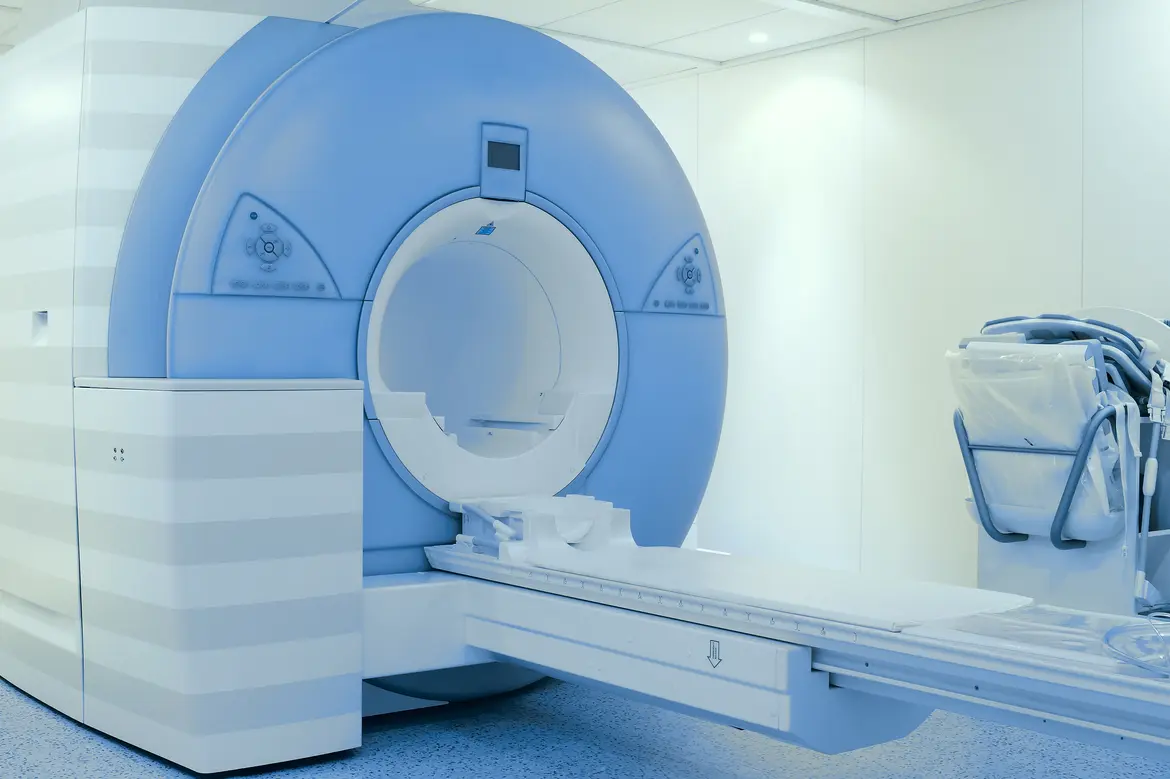-
-
Khu vực chăm sóc và điều trị


Nguồn: Getty Images
Tò Mò Về Sức Khỏe Của Não Bộ? Hãy Kiểm Tra!
Cập nhật lần cuối: 18 Tháng Tám 2022 | 5 phút - Thời gian đọc
Các đợt kiểm tra sức khỏe về thể chất có thể mang đến cho chúng ta sự an tâm, vậy thì tại sao không cân nhắc kiểm tra não bộ để đảm bảo nó đang hoạt động trong trạng thái tối ưu?
Có Sức Khỏe Tốt Có Nghĩa Là Gì?
Theo Tổ chức Y tế Thế giới (WHO), sức khỏe là "một trạng thái hoàn toàn về an khang thể chất, tinh thần và xã hội, và không đơn thuần là sự vắng bóng của bệnh tật hay sự bất lực".
Tuy nhiên, các số liệu thống kê của WHO lại cho thấy các bệnh và chứng bệnh tác động tới não bộ là nguyên nhân chính dẫn đến tàn tật và là nguyên nhân tử vong đứng thứ hai trên toàn cầu. Đột quỵ và chứng mất trí nhớ (dementia) là hai trong số những yếu tố đóng góp thường gặp nhất của các rối loạn hệ thần kinh dẫn đến sự tàn tật. Bệnh Parkinson, một phần bởi vì dân số lão hóa ngày càng gia tăng, là rối loạn về thần kinh phát triển nhanh nhất.
Điều thú vị là, trong khi rất nhiều người trong số chúng ta thực hiện những đợt kiểm tra sức khỏe thường xuyên để tìm kiếm các chứng bệnh có ảnh hưởng đến các cơ quan trong cơ thể họ và khả năng hoạt động của các cơ quan này, cũng như ung thư, chúng ta lại thường xem nhẹ việc kiểm tra cơ quan quan trọng nhất – não bộ của chúng ta.
Não người là một cơ quan phức tạp mà khoa học vẫn đang tiếp tục tìm hiểu thêm nhiều về nó, bất chấp những bước tiến vượt bậc đã được thực hiện trong y học hiện đại suốt bao nhiêu năm. Bởi vì vai trò then chốt nó nắm giữ trong mọi mặt của cuộc sống thường nhật – bao gồm khả năng tư duy, cảm nhận cảm xúc và ghi nhớ mọi điều – sở hữu một não bộ hoạt động hiệu quả, và đảm bảo nó giữ được sức khỏe trong suốt cuộc đời, là điều tối quan trọng đối với sức khỏe tốt một cách bền vững.
Hiểu Về Chức Năng Nhận Thức Của Não Bộ
Chức năng nhận thức, hay khả năng tư duy rõ ràng, học hỏi và ghi nhớ, là một mặt quan trọng của khả năng hoàn thành các nhiệm vụ hàng ngày.
Sức khỏe nhận thức chỉ là một chiều kích của sức khỏe não bộ. Các mặt khác của sức khỏe não bộ bao gồm chức năng vận động (kiểm soát vận động và cân bằng), điều hòa cảm xúc, và chức năng xúc giác (khả năng cảm nhận và phản ứng lại các kích thích như đau đớn, nhiệt độ và áp lực).
Một loạt các yếu tố khác nhau có thể ảnh hưởng một cách tiêu cực đến sức khỏe não bộ. Các yếu tố này bao gồm di truyền học, lão hóa, các thương tổn như đột quỵ, chấn thương não do tai nạn, các rối loạn sức khỏe tinh thần như trầm cảm lâm sàng và rối loạn lo âu tổng quát, sử dụng chất (substance use) như hút thuốc và uống rượu, và các bệnh như Parkinson và/hoặc chứng mất trí nhớ đi kèm với nó.
Hiểu Về Suy Giảm Nhận Thức
Mong đợi một vài sự suy giảm nhận thức dần dần theo tuổi tác là bình thường, chẳng hạn như thỉnh thoảng quên vài cái tên hoặc từ, để lạc đồ, và thấy việc học hỏi điều mới trở nên khó khăn hơn. Đó chỉ đơn giản là một phần tất yếu của quá trình lão hóa.
Suy giảm nhận thức nhẹ (Mild Cognitive Impairment – MCI), ngược lại, là một chứng bệnh mà người mắc phải đối mặt với những khó khăn nhiều hơn về trí nhớ hoặc tư duy của họ so với người khỏe mạnh ở cùng độ tuổi. Sự suy giảm này có thể được nhận thấy bởi bản thân người mắc bệnh và những người thường xuyên tương tác với họ, nhưng những thay đổi chưa đủ nghiêm trọng để can thiệp vào các hoạt động hàng ngày bình thường.
MCI có thể xảy đến ở mọi lứa tuổi và không chỉ là vấn đề của người cao tuổi. Trung Tâm Kiểm Soát và Phòng Ngừa Dịch Bệnh (Centers for Disease Control and Prevention) có báo cáo rằng 1 trong 9 người Mỹ từ 45 tuổi trở lên đã ghi nhận các vấn đề với nhận thức của họ. Ở Singapore, mỗi năm Viện Khoa Học Thần Kinh Quốc Gia chuẩn đoán có hơn 100 bệnh nhân dưới 65 được chuẩn đoán mắc hội chứng MCI (Mild Cognitive Impairment) và việc chuẩn đoán thường chỉ xảy ra ở giai đoạn muộn. Số lượng người trẻ tuổi mắc chứng MCI có thể tăng do suy giảm nhận thức là một trong những triệu chứng đi kèm với bệnh COVID kéo dài (long COVID). Sống ở những khu vực ô nhiễm cũng có mối liên hệ với hội chứng MCI.
Mặc dù không phải là dạng sa sút trí tuệ (dementia), người được chuẩn đoán mắc chứng MCI mang rủi ro phát triển chứng sa sút trí tuệ cao hơn. Chuẩn đoán hội chứng MCI từ sớm rất quan trọng đối với can thiệp và phòng ngừa sớm.
Hội Chứng MCI cũng có thể được gây ra bởi một vấn đề sức khỏe hoặc thậm chí bởi tác dụng của thuốc, và có thể là bệnh thoái lùi hoặc chữa khỏi được. Một số nguyên nhân có thể xảy ra bao gồm:
- Các vấn đề sức khỏe bao gồm bệnh tim, các rối loạn lipid, tăng huyết áp, tiểu đường, hội chứng chuyển hóa và béo phì
- Các vấn đề sức khỏe tinh thần bao gồm trầm cảm và lo âu
- Căng thẳng bị quản lý kém
- Các rối loạn giấc ngủ và chứng ngưng thở khi ngủ do tắc nghẽn (obstructive sleep apnoea)
- Các vấn đề não bộ về mặt cấu trúc bao gồm đột quỵ, chấn thương sọ não và các khối u
- Thiếu hụt vitamin hoặc các rối loạn dinh dưỡng khác
- Các rối loạn tuyến giáp, thận hoặc gan
- Khó khăn với thị lực hoặc thính lực
- Lạm dụng chất, bao gồm cả rượu và các loại thuốc cấm
- Tác dụng phụ của các loại thuốc như thuốc kháng acetylcholine dùng để điều trị các hội chứng đường tiểu, các loại thuốc cho trầm cảm và các vấn đề sức khỏe tinh thần khác
Làm Thế Nào Để 'Kiểm Tra' Não Bộ
Phát hiện sớm rất quan trọng trong việc làm chậm lại và phòng ngừa nhiều vấn đề sức khỏe trong tương lai. Sức khỏe não bộ cũng không nằm ngoài quy luật này.
Tuổi tác là nguyên nhân phổ biến của suy giảm nhận thức, nhưng nó không phải là nguyên nhân duy nhất. Mặc dù các bậc lão thành có rủi ro cao hơn khi nói đến sự suy giảm nhận thức và được kiểm tra não bộ thường xuyên trong những đợt kiểm tra sức khỏe tổng quát, bất kỳ ai ở bất kỳ độ tuổi nào cũng có thể trải qua kiểm tra nhận thức.
Bài Khảo Sát Trạng Thái Tinh Thần Thu Gọn (Mini Mental State Examination – MMSE) là công cụ kiểm tra suy giảm nhận thức và sa sút trí tuệ phổ biến nhất. Nó chứa 11 câu hỏi kiểm tra các lĩnh vực chức năng nhận thức, chẳng hạn như định hướng, đăng ký thông tin, sự chú ý, tính toán, hồi tưởng và ngôn ngữ.
Tương tự, Bài Kiểm Tra Tinh Thần Tóm Tắt (Abbreviated Mental Test – AMT) là một phép đánh giá 10-điểm thường xuyên được sử dụng trong bệnh viện để đánh giá trạng thái sảng (delirium) và những khiếm khuyết tinh thần khác ở bệnh nhân.
Parkway Shenton, thông qua sự hợp tác với Neurowyzr, hiện đang cung cấp dịch vụ kiểm tra và giám sát sức khỏe não bộ với công cụ Bài Quét Chức Năng Não Số (Digital Brain Function Scan – DBFS) được sở hữu bởi Neurowyzr.
Là một công cụ đạt cấp độ y học, DBFS bao gồm một loạt các trò chơi khoa học thần kinh mà có thể được hoàn thành trong vòng 15-20 phút. Bài kiểm tra này tập trung vào việc đánh giá bộ nhớ hoạt động, bộ nhớ dài hạn, sự chú ý, và chức năng điều hành của não bộ. Nó có thể được thực hiện trực tuyến bằng cách sử dụng điện thoại di động, máy tính bảng, máy tính xách tay, hoặc máy tính bàn, nhờ đó mang lại sự tiện lợi cho những ai chọn hoàn thành bài đánh giá từ sự thoải mái của gia đình.
Kết quả của bài quét DBFS sẽ có được ngay sau khi hoàn thành và có thể được thảo luận sau đó với bác sĩ. Điều này cho phép các bác sĩ chăm sóc chính (primary care physician) có thể chuẩn đoán sớm các loại bệnh não hơn, kể cả các vấn đề về cấu trúc như đột quỵ, khối u, chấn thương sọ não, cũng như các rối loạn chức năng não bộ như các loại bệnh thoái hóa thần kinh như bệnh Alzheimer, bệnh Parkinson và các dạng mất trí nhớ khác. Với đại dịch COVID-19 gần đây, sự quan tâm cao độ vào tác động dài hạn của việc nhiễm COVID-19 lên não bộ cũng có thể được giám sát với bài kiểm tra này.
Những Bí Kíp Cho Một Não Bộ Khỏe Mạnh
Trong khi ngăn ngừa hoàn toàn mọi nguyên nhân gây suy giảm nhận thức là không thể, việc bắt đầu đầu tư vào não bộ sớm chừng nào hay chừng đó có thể mang đến thay đổi sâu sắc cho tương lai của chúng ta.
Hãy bắt đầu bằng việc xét duyệt một vài thay đổi về chế độ ăn và lối sống, như:
- Tập thể dục thường xuyên, và giảm thời gian ngồi
- Chế độ ăn uống lành mạnh
- Lên lịch kiểm tra sức khỏe thường xuyên
- Kiểm soát các rủi ro sức khỏe như huyết áp cao, tiểu đường hay tiền tiểu đường, và các rối loạn lipid
- Tìm kiếm sự trợ giúp khi sử dụng các loại chất gây nghiện hoặc mắc chứng nghiện thuốc lá, rượu, và/hoặc các loại thuốc giải trí
- Quản lý căng thẳng
- Áp dụng các thói quen ngủ tốt cho sức khỏe
- Thử thách não bộ của bạn (bởi vì, như sức mạnh cơ bắp, bạn có thể mất đi khả năng nhận thức nếu không sử dụng nó)
- Nuôi dưỡng các kết nối xã hội
Sở hữu sức khỏe não bộ tốt đẹp không chỉ đơn giản là không mắc bệnh. Nó bao gồm việc tối ưu hóa chức năng não bộ của bạn để cùng với quá trình lão hóa tự nhiên, rủi ro suy giảm nhận thức và bệnh não liên quan đến tuổi tác sẽ được hạ thấp, trong khi sức khỏe tổng thể và sự an khang của bạn đồng thời được cải thiện.
Tất nhiên, càng bắt đầu sớm, càng tốt.
Quý khách quan tâm đặt lịch khám sức khỏe định kỳ hoặc tìm hiểu thêm về Công nghệ Quét Chức Năng Não Bộ Kỹ Thuật Số?
Vui lòng liên hệ chuyên viên Tư Vấn Khám Sức Khỏe Parkway Shenton qua email ehs.customerservice@parkwaypantai.com hoặc WhatsApp +65 8660 0090 ngay hôm nay.
Neurowyzr. (2022, August 11). Digital Brain Function Screen. Retrieved from https://neurowyzr.com/digital-brain-function-screen/










